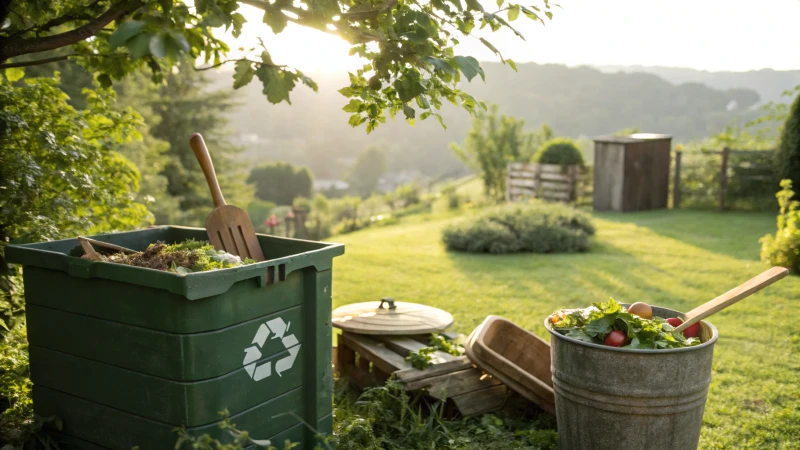
Ever wondered what happens to your wooden cutlery once it’s thrown away? Let’s dig into the best ways to ensure it truly benefits the planet!
To dispose of disposable wooden cutlery properly, I always check local waste management guidelines. Usually, these include composting or recycling options, which ensure the natural materials break down effectively, reducing environmental harm.
Having spent countless weekends exploring eco-friendly practices, I’ve learned that knowing your local disposal options can make a significant impact. Whether you’re in a bustling city or a quaint rural area, each place has its own unique guidelines. By tapping into these resources, not only do you help reduce waste, but you also support a sustainable future. Let’s dive deeper into how you can align your actions with nature’s needs.
Composting wooden cutlery is always the best disposal method.False
Not all regions accept wooden cutlery in compost; check local guidelines.
Wooden cutlery can be recycled in some regions.True
Certain areas have recycling programs for wooden products; verify locally.
How Can You Compost Wooden Cutlery at Home?
Ever felt guilty tossing out those wooden forks and knives after a picnic? Here's how you can give them a second life right in your backyard!
To compost wooden cutlery at home, make sure it’s free of treatments or non-biodegradable elements. Break it down into smaller pieces to speed up decomposition and mix it with other organic waste in your compost bin.
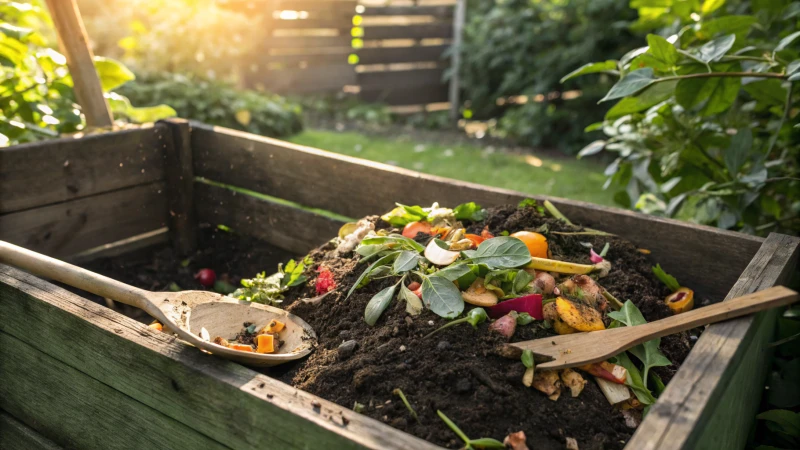
Understanding Compostable Materials
Before I began composting wooden cutlery, I had to understand what made it compostable. I realized that the key was ensuring the cutlery was free from any coatings or chemicals that could slow down decomposition. Most of the wooden utensils1 I came across were made from birchwood or bamboo—materials that break down naturally when untreated.
Preparing Wooden Cutlery for Composting
One weekend, after hosting a barbeque, I found myself with a pile of wooden forks and knives. It was then that I decided to take action. First, I checked each piece for any varnish or paint—these needed to be removed before adding them to my compost.
| Step | Action |
|---|---|
| 1 | Check for coatings |
| 2 | Break into pieces |
- Check for Coatings: I carefully inspected each item for any non-biodegradable coatings.
- Break It Down: To help nature along, I broke the cutlery into smaller pieces, increasing the surface area for faster breakdown.
Integrating Wooden Cutlery into Your Compost Bin
Once my cutlery was prepped, I layered it into my compost bin alongside fruit peels and vegetable scraps.
- Layering: This mix helps maintain balance and ensures everything breaks down evenly.
- Maintain Moisture: Keep your compost pile moist but not waterlogged. Proper moisture levels aid microbial activity and decomposition.
Monitoring the Decomposition Process
To keep things moving, I made sure to turn my compost every few weeks. This helped aerate the pile and speed up the decomposition process. Over time, I monitored how well the cutlery broke down compared to other waste.
- Turn Regularly: Aerate your compost by turning it every few weeks to accelerate breakdown.
- Check Progress: Over time, monitor how well the cutlery decomposes alongside other waste.
If you're diving into composting like me, learning about compost bin maintenance2 can really optimize your efforts. Just remember, patience is key—decomposition can take several months depending on environmental conditions.
Untreated wooden cutlery is compostable at home.True
Untreated wooden cutlery, like birchwood or bamboo, decomposes naturally.
You should paint wooden cutlery before composting.False
Painted cutlery hinders decomposition and should not be composted.
What Are the Recycling Options for Wooden Utensils?
Ever wondered what happens to wooden utensils after they've served their purpose? Let's dive into sustainable disposal options that are both eco-friendly and practical!
Wooden utensils can be composted as they are biodegradable, provided they are clean and free of non-organic coatings. Alternatively, local recycling programs may offer wood-specific disposal options.
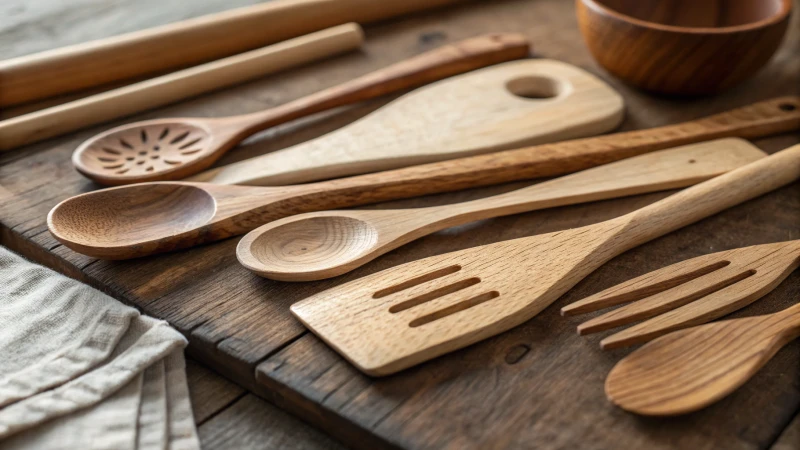
Composting Wooden Utensils
I remember the first time I tried composting at home—it was like starting a little ecosystem right in my backyard. Wooden utensils can join this eco-adventure as they naturally decompose. Before you toss them into the pile, make sure they’re free of any non-organic coatings. Think of them as the carbon-rich "browns" in your compost heap, working in harmony with those green kitchen scraps to create rich, nourishing soil.
Local Recycling Programs
Another option I explored was checking out local recycling programs. It's like uncovering hidden gems in your community! Many places have facilities to process wood waste, turning it into mulch or other useful products. It's a great idea to contact your local waste management to get the scoop on what options are available near you. Some areas even offer curbside pick-up for yard waste, which might include your trusty wooden utensils. Just remember to ask about any specific requirements before setting them out.
Creative Reuse Ideas
When I first started exploring creative reuse, it was like unlocking a new level of resourcefulness. If recycling isn’t an option, why not transform those utensils into something new? With a little sanding and imagination, they can become charming plant markers or quirky garden tools. A quick search online will reveal countless DIY projects3 waiting to breathe new life into your old cutlery.
Comparative Table of Disposal Methods
| Method | Pros | Cons |
|---|---|---|
| Composting | Natural breakdown, enriches soil | Requires a compost system |
| Local Recycling | Specialized processing, convenient | Availability varies by location |
| Creative Reuse | Personal satisfaction, custom solutions | Requires time and effort |
Each method has its own charm and challenges, and it's all about finding the one that fits your lifestyle and environmental goals best. Embracing sustainable practices with wooden utensils is not only about choosing wisely but also having fun while reducing waste.
Wood recycling4 is a step towards minimizing landfill waste and supporting a circular economy. By exploring these options, we ensure our actions benefit both ourselves and our planet.
Wooden utensils can be composted.True
Wooden utensils break down in compost heaps, adding carbon to the pile.
All local recycling programs accept wooden utensils.False
Not all areas have facilities for processing wood waste; check locally.
Why do disposal methods for wooden cutlery vary by region?
Ever wondered why disposing of wooden cutlery feels like a puzzle depending on where you are? Let's unravel these regional quirks together!
Yes, there are regional differences in disposal methods for wooden cutlery. These variations depend on local waste management systems, regulations, and available facilities for composting or recycling.
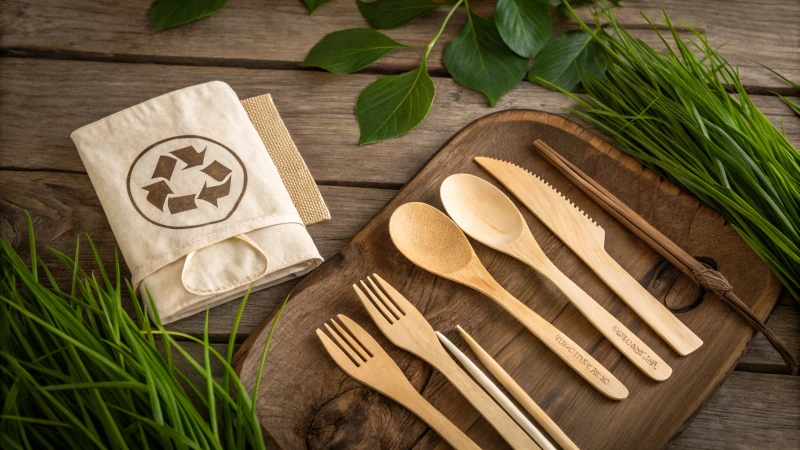
Understanding Regional Waste Management Systems
It’s fascinating how a simple task like disposing of wooden cutlery can change so much depending on where you are in the world. I remember visiting North America, where they readily tossed these utensils into compost bins. It felt seamless, almost like nature taking its course. But then, during a trip to Asia, I found myself scratching my head, unsure whether to throw them in general waste or look for a compost bin. Each place seemed to have its own rulebook.
| Region | Common Disposal Method |
|---|---|
| North America | Composting, if available |
| Europe | Recycling or composting |
| Asia | General waste or composting |
| Australia | Industrial composting |
The Role of Local Regulations
Regulations can really throw you a curveball. When I was in San Francisco5, the strict composting guidelines were a testament to how seriously the city takes sustainability. But elsewhere, the rules were more relaxed, often directing me to use general waste bins. It’s amazing how much these local laws can shape our everyday actions.
Composting Facilities
The availability of composting facilities is like a hidden treasure hunt. In places with advanced systems, tossing your wooden cutlery into the compost feels like contributing to something bigger. But in regions without such luxury, industrial composting plants are the go-to. I’ve often found that a quick check with local authorities or waste management companies helps clear up any confusion.
Recycling Possibilities
I’ve seen some regions embrace recycling programs that accept wooden cutlery, but this often comes with conditions—no food residue or harmful coatings. I remember looking up recycling guides from local councils6 to make sure I was doing it right. They’re a goldmine of information!
Community Initiatives and Innovations
Communities are getting creative! I once participated in a local initiative where wooden cutlery was collected for special projects, turning them into art installations. Engaging with local environmental groups7 can uncover such unique opportunities that not only help the environment but also foster community spirit. It’s all about finding those little pockets of innovation that make sustainability both practical and inspiring.
Wooden cutlery is compostable everywhere.False
Not all regions have composting facilities or accept wooden cutlery in compost.
Local regulations affect wooden cutlery disposal methods.True
Disposal methods vary based on local laws and available infrastructure.
How Does Proper Disposal of Wooden Cutlery Benefit the Environment?
Have you ever wondered what happens to that wooden fork after your picnic?
Proper disposal of wooden cutlery benefits the environment by reducing landfill waste, promoting decomposition, and enhancing soil quality through composting. It supports sustainable waste management and decreases pollution.
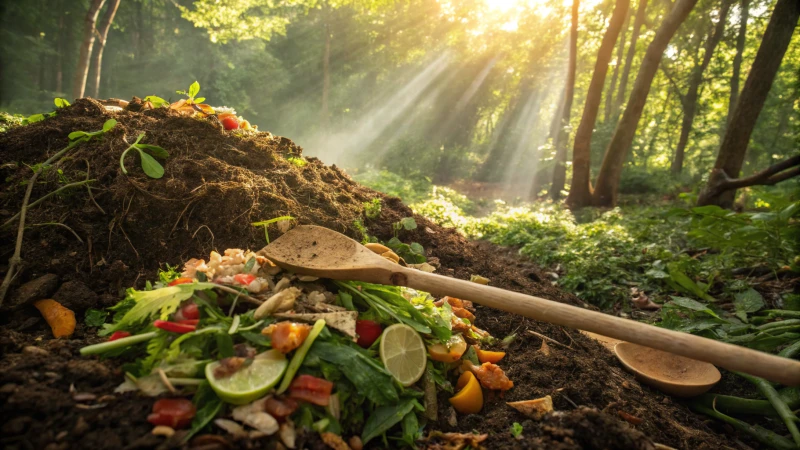
The Role of Composting in Environmental Sustainability
I remember the first time I tried composting—it felt like magic, turning what we usually consider trash into rich, dark soil. Composting wooden cutlery works the same way. As these utensils break down, they become part of a nourishing cycle that enriches the soil with essential nutrients. Not only does this reduce landfill waste8, but it also enhances the earth's fertility, encouraging lush plant growth. It's a small act that contributes to a much bigger picture.
Recycling Opportunities for Wooden Utensils
In some regions, recycling facilities accept wooden cutlery, transforming it into new materials. Imagine an old wooden spoon being reborn as a part of a stylish new desk or a quirky piece of art. By embracing recycling, we support a circular economy that minimizes waste and conserves natural resources. Each time I recycle, I feel like I'm giving back to the planet in a meaningful way.
Regional Variations in Disposal Practices
Traveling has taught me that disposal practices can vary widely around the world. In Europe, for instance, stringent waste management policies often include wooden cutlery in composting programs, while in North America, some areas focus more on recycling. In Asia, practices can be a mix of both, depending on the region. Understanding local guidelines not only ensures compliance but maximizes the positive impact on our environment.
| Region | Disposal Method | Environmental Impact |
|---|---|---|
| Europe | Composting | Enriches soil, reduces landfill |
| North America | Recycling | Reduces carbon footprint |
| Asia | Mixed (Compost/Recycle) | Varied impacts, dependent on region |
Encouraging Eco-Conscious Consumer Behavior
I've seen how education can empower consumers to make environmentally friendly choices. Clear labeling on packaging and public awareness campaigns can inspire sustainable habits. As more people adopt eco-friendly practices, the collective benefit to our planet becomes increasingly significant. By choosing to be mindful about disposal, we all play a part in fostering a healthier environment.
Adopting these strategies is not just about business or policy; it's about being part of a movement towards a healthier planet. Emphasizing sustainable practices aligns with today's values and supports long-term ecological balance. Together, we can make choices that matter.
Composting wooden cutlery enriches soil with nutrients.True
As wooden cutlery decomposes, it releases nutrients that enhance soil fertility.
Recycling wooden utensils increases landfill waste.False
Recycling reduces landfill waste by converting used materials into new products.
Conclusion
Proper disposal of wooden cutlery involves checking local guidelines for composting or recycling, ensuring they are untreated for effective decomposition and environmental sustainability.
-
Understanding the biodegradability of wooden utensils helps ensure that you are using eco-friendly products suitable for composting. ↩
-
Maintaining your compost bin effectively ensures optimal conditions for decomposition and reduces time needed for breakdown. ↩
-
Get inspired by creative DIY projects that reuse old cutlery. ↩
-
Understand the environmental benefits of wood recycling. ↩
-
Learn about San Francisco's comprehensive composting guidelines to understand how they handle organic waste, including wooden cutlery. ↩
-
Check local council recycling guidelines to find out if wooden cutlery is accepted and how it should be prepared. ↩
-
Explore local environmental groups' initiatives for disposing of wooden cutlery creatively and sustainably. ↩
-
Discover how recycling minimizes waste sent to landfills, conserving space and reducing pollution. ↩

